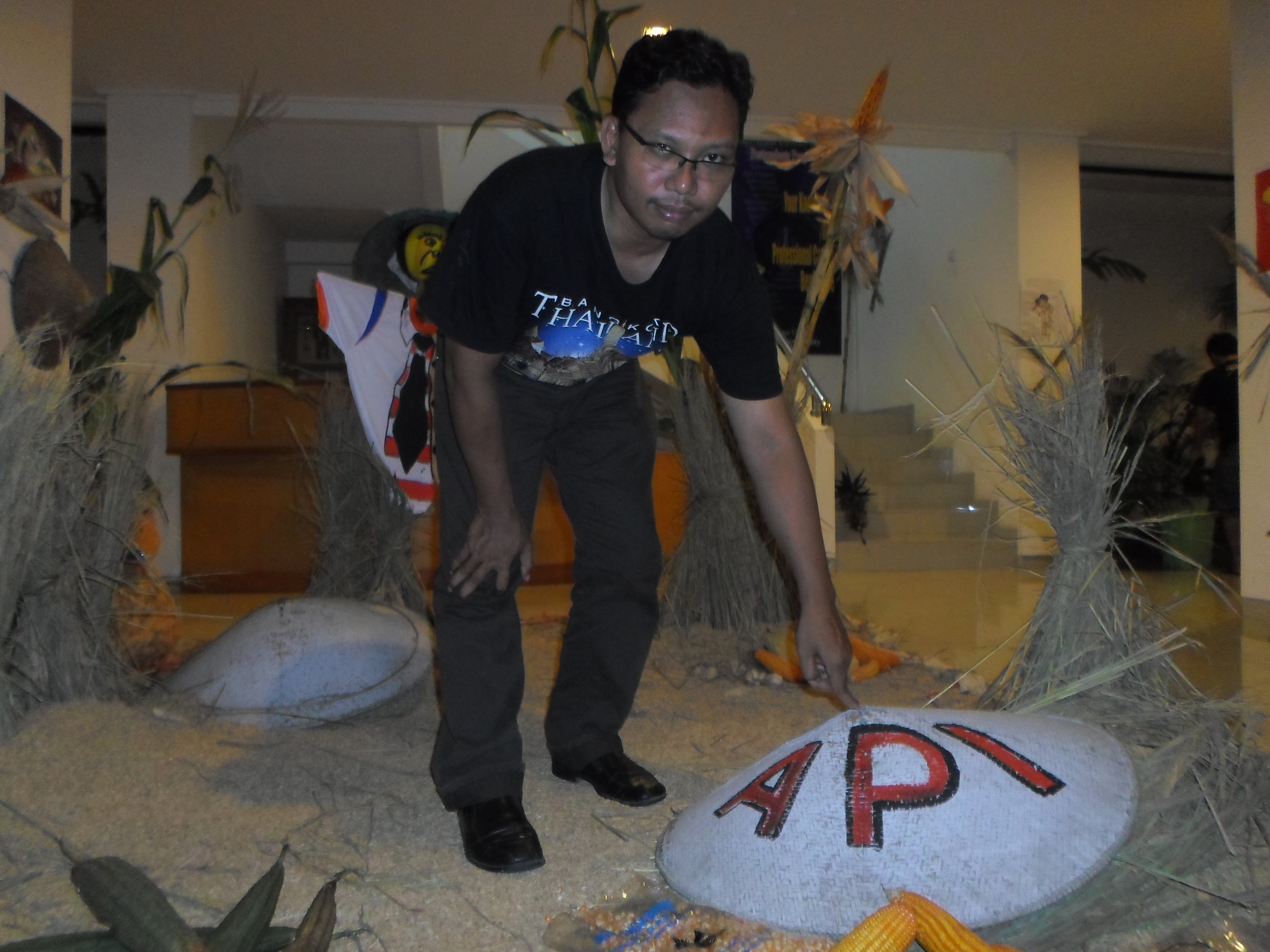by Ika Krishnayanti, API
Muhammad Rifai (31), has been working with Indonesia Peasant Alliance (Aliansi Petani Indonesia or API) for only 3 years when he started to search for excellent (ideal) seeds of corn. It is his deep concern that peasant finds the price of seed corn is very high, the seeds is produced by private company, then it makes peasants become more and more depend on those seeds. It is also hybrid seeds, and suspected as transgenic seeds. If so, it definetely harms the environment and health of all.
It was in 2009 when he for the first time started his searching, collecting, and selecting the best local seed corn, especially the best local ones. Then he participated in the event of ITPGRFA (International Treaty on Plant Genetic Resources for Food and Agriculture) held in Bali in 2009 when he met other representative of farmers from Brasil and Mexico.Then Rifai got their seeds. Until now, Rifai has been planting, developing the best local seeds, the Brasillian and Mexican corn in his hometown, in Lamongan District, East Java Province, Indonesia. He is still growing four (4) varieties of two local varieties of “Siliantang” and “Asmorodhono”, and the two foreign varieties from Brasil and Mexico.
Rifai disseminated the excellent seeds he grown (either local or/and foreign ones) to corn farmers of Kediri, East Java. Then the farmers cross-breed and propagated the seeds, and plant them in large scale. Based on his 2 years experience in developing the ideal corn seeds, Rifai and other farmers find the quality of their seeds is the same as the quality of seeds produced by the private company. While the seeds they developed is resistant to “bulai” disease (the leaves become white due to fungi infestation), on the contrary the seeds produced by company is susceptible to the disease. Regarding the price, the seeds developed by farmers is 70% cheaper compare to the company’s seeds.
It is now the era of farmers’ resurgence when Indonesian Constitution Supreme Court finally decided that farmers are allowed to collect genetic resources and disseminate it among farmers (it is under the national law of Plant Cultivation System). Before this, farmers are prohibitted to collect and distribute plant genetic resources without licence of the government. Now farmers as breeders and cultivators enjoy the situation to develop their knowledge and skill to search for ideal seeds of their own. Rifai and a group of corn farmers of Kediri District now joins cooperation to produce ideal corn seeds for farmers. The consumers seem satisfy with the seeds’ performance.
Rifai, a father of one son, now gains customers coming from three subdistricts of his hometown, Lamongan District, East Java Province. While there is also demand from Gorontalo Province (Sulawesi) which is the center of corn in eastern part of Indonesia as much as 40 tons from Kediri corn farmers. In Bali, there is also demand to experiment the local seeds, the group then facilitated Balinese farmers to have 30 kg of seeds ready to be planted as trial to see the feasibility of the corn seeds, and find their own seeds.
But Rifai and the group realize that there are still several challenges in developing ideal seeds, such as the quality control and the quantity of seeds since the demand is high but the supply is still limited. This is due to the equipment to dry the seeds is limited. Farmers only depend on the sun. There should be more experiment or study to find other local seeds since Indonesia is rich with biodiversity, especially genetic resources for food. Such as good corn seeds of East Nusa Tenggara Province which is tall, big, and produce 3 corns of each cornstalk. This will need more attention and will to achieve genuine prosperity of the farmers (ink/API/21 Oct 2013).




Comments are closed